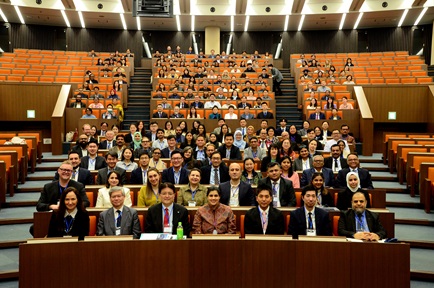Stay or go? Quest for better quality of life pushing some to rethink priorities
The quest for better quality of life is a key factor pushing some people to re-evaluate their priorities during the pandemic.
The uncertainties and disruptions of the pandemic have prompted many people to re-evaluate their priorities, with some taking the decisive step of quitting their jobs in pursuit of a better quality of life, observers say.
This is likely a key reason that the average monthly resignation rate for professionals, managers, executives and technicians (PMETs) crept up to 1.5 per cent in the third quarter last year. It was 1.3 per cent in the third quarters of 2018 and 2019. These Manpower Ministry figures cover employees of all nationalities and include those who switched jobs as well as those who stopped working.
The overall resignation rate, however, has remained slightly below pre-pandemic levels, though the ministry said that turnover trends in the third quarter were mixed for industries and occupations.
Ms Jaya Dass, managing director at Randstad Singapore and Malaysia, says the firm's research last year showed that work-life balance gained significant importance during the pandemic.
It was the first time in the 10 years of conducting its employer brand survey here that "work-life balance" tied with "attractive salary and benefits" as the most important employee value proposition people look for in an ideal employer, she says. Both were selected by 74 per cent of respondents.
A survey last month by jobs portal Indeed similarly found that 56 per cent of workers polled here said flexible working options would encourage them to stay longer in their jobs, with the same proportion citing higher compensation as a deciding factor.
Mr Sandeep Sharma, president of Asia at human resources (HR) software company Workday, says many people are less threatened by pandemic-related woes and are seeing the gradual reopening of the economy and a recovering job market. "This has culminated in the surge in 'pandemic epiphanies' lately, in which employees are proactively seeking new opportunities that better fit their expectations and lifestyle," he adds.
This was the case for Ms Natasha Ann Zachariah, who left her job as a senior writer at a digital agency in January last year.
When she could no longer travel, meet friends as often or go to events due to the Covid-19 restrictions that began in 2020, her life started revolving around work. But that itself became vastly different as she was not able to physically meet her colleagues to discuss projects or enjoy lighter moments sharing jokes or chatting over lunch.
"When you're pulling long hours and working on weekends with nothing to look forward to, you start to question whether you're really making a difference in your job," says Ms Zachariah, 34.
"The pandemic made me evaluate the kind of job I want to be in, the work I want to do and who I would like to work with."
Finding a new job was harder than expected, so she did freelance work for about six months before starting as a branding and communications manager in the hospitality industry, where she feels she has better separation between work and life.
Finances may contribute to some people's decision to quit.
HR commentator Adrian Tan says some have amassed more savings during the pandemic without the big-ticket expense of travel, so money would be less of a consideration while factors like meaning, purpose and alignment to personal values become more important.
Mr Tan, 42, left his own job in research and advocacy for the future of work last year due to differences with management. He has since started a marketing firm for HR tech start-ups. He adds that it is difficult for people to have deep relationships with colleagues if they do not get to see them at all.
"Without such attachment, one will easily 'throw the letter' when things don't go their way," he says.
This factor was also cited by Professor Boh Wai Fong, deputy dean of Nanyang Technological University's Nanyang Business School, who says employees who were hired during the pandemic have very little attachment to their employer, as they may have never even met their boss in person or been in their company offices before.
This means once a more attractive offer comes their way, they are more likely to accept it and leave their current job, she says.
Meanwhile, front-line workers and those in essential services have been particularly impacted by the changing pandemic restrictions and have become increasingly concerned about their livelihoods, says ManpowerGroup Singapore country manager Linda Teo.
"These workers are resigning to seek jobs that offer more stability and perhaps autonomy as well to have more control over their lives," she notes. "Also, essential workers are more likely to be exposed to Covid-19 as they usually have to work on-site. This might also be driving individuals to resign to look for jobs where they have the option to work from home."
Dr Sherwin Chia, senior lecturer for HR management at the Singapore University of Social Sciences, says employees may resign during a pandemic if they feel that quitting is the only viable option in order to preserve their health and well-being.
They could be overwhelmed by work, isolated and unsupported, and feel they can no longer sustain that workload, or they could feel they have bad leaders who did not look after staff or created a toxic work environment, he adds.
Although the number of resignations here has not risen sharply, unlike in some other countries such as the United States, National University of Singapore associate professor of sociology Tan Ern Ser notes that there could be employees who want to quit but choose to stay put for the sake of security, and these "stayers" may actually be "quitters" in spirit, even if they do not take the step of actually quitting.
"In the Singapore context, quitting is not always an option to be taken lightly, since Singaporeans desire to live the Singapore dream of upward social mobility, together with comfort and security," he says. "Changing jobs always comes with a certain degree of risk and insecurity, with possible repercussions on the family and children."
Prof Tan adds: "In most cases, they would plod on for the sake of their household finance. Perhaps, instead of actually quitting, their desire to 'turnover' is expressed in the form of regular sick leave or occasional absenteeism."
On the other side of the coin, the promise of a higher salary can be a strong pull factor, such as for people who need to earn more to cover growing expenses or those whose skills are in demand.
Ms Dass of Randstad says that in high demand areas like technology, candidates who choose to switch employers can expect a salary increase of about 10 per cent.
Those equipped with niche and high demand skills could even command a pay rise of up to 35 per cent when they change employers.
"The race to secure good tech professionals is one of the fiercest talent wars as industries like manufacturing, supply chain, healthcare and financial services will continue to drive digital transformation and innovation efforts in 2022," says Ms Dass.
ManpowerGroup's Ms Teo says companies are also offering attractive increments to people working in HR, finance and environmental, social and corporate governance. For example, with hybrid work becoming a norm, companies are investing more in employee engagement. HR professionals will need to take on a more strategic function and develop expertise in HR technology and analytics to address this need, so companies are offering higher salaries to hire people with the required skill set.
Finally, some people quit for factors unrelated to the pandemic.
Concern for the environment was the main reason Mr Marvin Koh left his job as an IT associate in the retail industry in September last year. He secured a new role as an IT executive at a clean energy firm faster than he expected.
"The pandemic had little impact on my decision to look for a new job. We transitioned easily to a hybrid work arrangement," says Mr Koh, 28. "I want to work in a company that is taking climate action and clean energy is it."
Source: The Straits Times







